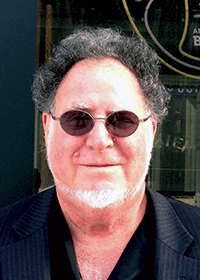Each year, millions of Americans seek guidance regarding recommended sleep durations. Recently, the National Sleep Foundation convened a multidisciplinary panel of experts to develop new age-specific recommendations for appropriate sleep durations. The panel consisted of experts in sleep, anatomy, physiology, pediatrics, neurology, gerontology, and gynecology. The recommendations resulted from multiple rounds of consensus voting after a comprehensive review of published scientific studies on sleep and health. They were published in the journal Sleep Health and are available for free on the National Sleep Foundation’s website at www.sleephealthjournal.org.
“These recommendations used a rigorous, systematic approach in which we reviewed scientific literature relating sleep duration to health, performance, and safety from around the world,” says Max Hirshkowitz, PhD, DABSM, who was lead author of the document. “They are scientifically-grounded and designed to improve the sleep health of the millions of people who rely on experts for this information.”
Summarizing Key Highlights
The National Sleep Foundation revised the recommended sleep ranges for all various children and teenage groups as well as for younger, middle-aged, and older adults (Table). A new range—“may be appropriate”—was added to acknowledge the variability in appropriate sleep durations that occurs within certain age groups of patients. The recommendations define times into three categories: 1) recommended, 2) may be appropriate for some individuals, and 3) not recommended.
“The recommendations will hopefully help people make sleep schedules that are within a healthy range,” Dr. Hirshkowitz says. “They can also serve as a useful starting point for clinicians to have informed discussions with patients.” He adds that the National Sleep Foundation remains committed to regularly reviewing and providing the recommendations so that clinicians and the general public can be confident that they represent the best guidance for sleep duration and health.
An Important Issue
The requirements for length of recommended sleep durations vary across the lifespan and from person to person. The recommendations should be viewed as guidelines for healthy individuals rather than in the context of a sleep disorder. In some cases, sleep durations outside the recommended range may be appropriate, but the need to deviate far from the normal range is rare. “People who habitually sleep outside the normal ranges may show signs or symptoms of serious health problems or compromise their health and well-being,” adds Dr. Hirshkowitz.



 admin
admin